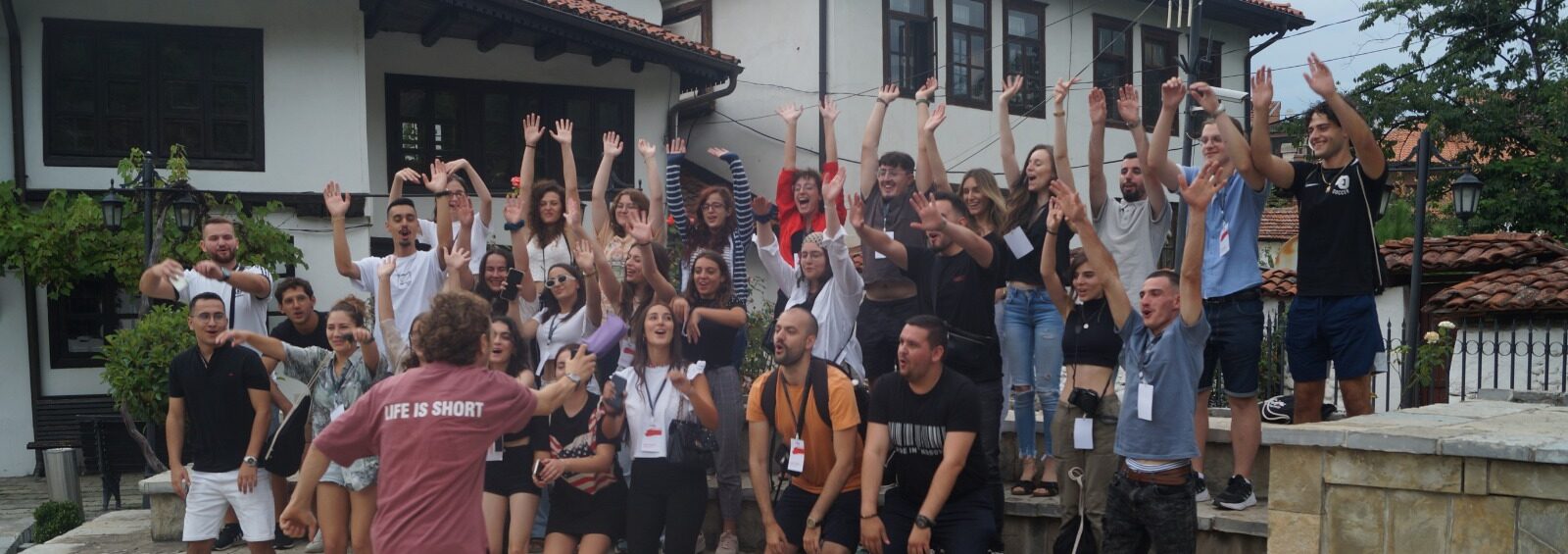GERMIN in cooperation with World Bank Albania organized the virtual meeting: Remittances – a Footprint for Development. This event brought together 26 participants on ZOOM and above 20 on Facebook Live from the Albanian Switzerland diaspora members and the key stakeholders pertaining to remittances in Albania.
Arbnor Mjeku, GERMIN, welcomed everyone and stressed the importance of remittances. “Remittances account for over 10% of Gross Domestic Product in Albania and are a major source of income for many households. However, despite these numbers, remittances are failing to have the maximum effect on the economic development of their countries.”-said Mr. Mjeku.
Ilir Gedeshi, Executive Director of the Center for Economic and Social Studies (CESS), based on studies over the years that have been done on emigration from the Republic of Albania, said that emigration trends were divided into three stages where each stage was set in a decade. This division was made based on the typology of emigration history.
- According to Mr. Gedeshi, the first stage, which dates back to the ’90s, was characterized by illegal emigration, which was concentrated in neighboring countries. The emigration of this decade was also male.
- Mr. Gedeshi says that the second stage of emigration belongs to the years 2000, years which are characterized by the beginning of the formalization of emigration, paving the way for opportunities for family reunification. I
- In the third decade, the characteristic is the emigration in the features of asylum, the illegal emigration, where the flows of illegal immigrants approached Albania as a transit country with the aim of passing to the countries of Western Europe. Based on the studies done, Mr. Gedeshi states that about 57-58% of the population of the Republic of Albania is currently concentrated outside the territory and that future trends are increasing, where mainly these trends are predicted to have the characteristics of movements of well-educated population and with a good economic standard.
Regarding remittances, as a result of emigration, Mr. Gedeshi, based on relevant studies says that before the global economic crisis the level of remittances was 12% of the country’s GDP, at a higher level than foreign investment, thus becoming the main element in the well-being of the country’s economy. Further, the level of remittances has fallen from the crisis period until four years ago, but still, remittances have continued to be an essential element in the country’s economy. Problematic is the fact that a good part of remittances are used for consumption and very little for investment. Another problem, according to Mr. Gedeshi, is the transfer of remittances in an informal way. One factor that can have a positive effect is the concentration of young immigrants in more developed countries such as Western Europe, or young immigrants who are qualified to work better jobs and therefore get paid better and, consequently, send more remittances.
Another factor that would have a positive impact according to Mr. Gedeshi is that in addition to remittances, important are the savings that our compatriots have in their places of residence, which reach the level of 5.5 times higher than remittances. Thus the right policies would bring the transfer of remittances in the right ways, their proper use and guarantee of security and attraction for our compatriots to dig their money into a potential fund or investment.

Fatos Cocoli, an expert on economic affairs at the Ministry of Diaspora stated three main needs. First, encourage and increase the transfer of money from the diaspora through formal channels. Second, the orientation regarding spending this money more effectively and lastly, to be able to attract new diaspora savings in the country’s banking or investment channels.
The discussion was then focused on the audience which was engaged throughout the meeting on the chat.
Njomza Gutaj, it is stated that our compatriots have sent remittances because for them there has been a direct interest, which are their family members and their living in a dignified manner. At the moment when the development of remittances is questioned, Mrs. Gutaj says that security is important for immigrants here because there is a lack of personal connection, so it is the governments that must show the interest, guarantees and the right conditions to enable that. Also Mrs. Gutaj says that even in terms of the negative effects of remittances, it is still the governments that must provide their citizens with a standard and social welfare where they can live with dignity.
Osman Osmani, founder of Prointegra.ch, says that it is important not to leave without discussing the social aspect of human capital at the same time with the economic aspect. It often happens that compatriots are often seen as a vote and very rarely as part of the society of the country. Therefore, the state should consider its citizens as subjects and not as objects.
When it comes to remittance development, trust and security are key elements. Thus, it is not enough for the governments to raise awareness, but the policies should be transferred to the interstate level, where Albanian immigrants should be considered as important social and political entities, as the interest of Albanian emigrants is direct for both the mother country and the country of residence.

GERMIN in collaboration with the World Bank is organizing a series of events with the Albanian Diaspora around the world and financial sector experts in Albania to discuss challenges and opportunities related to remittances, as an important catalyst of economic development.
The series is developed in the context of Project Greenback, the financial education component of the Remittances and Payments Program (RPP), funded by the Swiss Secretariat of Economic Affairs (SECO) and implemented by the World Bank in partnership with the Bank of Albania and GERMIN.



